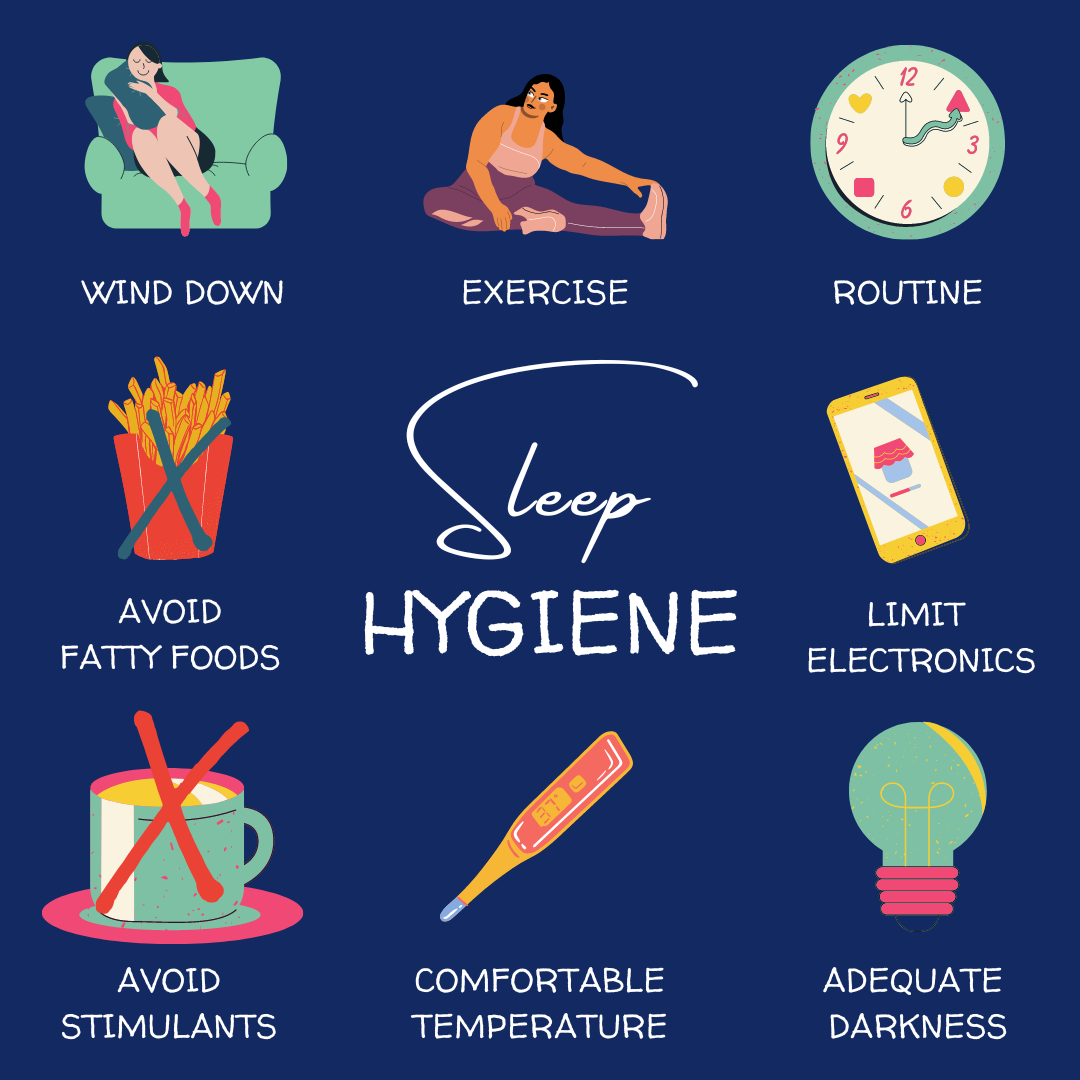Sleep is essential to our mental health.
Working on your sleep hygiene is something to take seriously and be intentional about. According to Helpguide’s resource on getting better sleep, try to go to bed and get up at the same time every day. This helps set your body’s internal clock and optimizes the quality of your sleep. Choose a bed time when you normally feel tired, so that you don’t toss and turn.
Getting enough sleep is one-of-the-essentials to our mental health. According to a new study out of the University-of-Southern-Florida, all it takes is three consecutive nights of sleep loss to experience a “great deterioration” in both mental and physical wellbeing.
A poor night’s sleep was defined as any evening in which an individual slept less than six to eight hours. Make sure you prioritize getting the sleep your body needs to do well. When you burn the candle at both ends you wind up lacking the bandwidth to be your best. If you’re getting enough sleep, you should wake up naturally without an alarm. If you need an alarm clock, you may need an earlier bedtime.
People who exercise regularly sleep better at night and feel less sleepy during the day.
It’s normal to wake up briefly during the night, but if you’re having trouble falling back asleep, try the following ideas:
- Stay out of your head.
- Don't think about your inability to fall asleep...that stress only encourages your body to stay awake.
- Make relaxation your goal, not sleep.
If you’ve been awake for more than 15 minutes, get out of bed and do a quiet, non-stimulating activity, such as reading a book.
Postpone worrying and brainstorming. If you wake up during the night feeling anxious about something, make a brief note of it on paper and leave it till morning.
Your daytime eating habits also play a role in how well you sleep...especially in the hours before bedtime. Your overall eating patterns rather than specific foods make the biggest difference to your quality of sleep. Vegetables, fruit, and healthy fats—and limited amounts of red meat—may help you to fall asleep faster and stay asleep for longer.
- Cut back on sugary foods and refined carbs.
- Limit caffeine and nicotine.
- Avoid big meals at night.
- Avoid alcohol before bed.
- Avoid drinking too many liquids in the evening.
Regular exercise also improves the symptoms of insomnia and sleep apnea and increases the amount of time you spend in the deep, restorative stages of sleep. It can take several months of regular activity before you experience the full sleep-promoting effects. So be patient. Finish moderate-to-vigorous workouts at least three hours before bedtime. And remember, even low-impact exercises such as yoga or stretching at night can also help promote sleep.
-Jerry Strausbaugh, EdD, LPCCS, Executive Director
https://www.helpguide.org/articles/sleep/getting-better-sleep.htm








